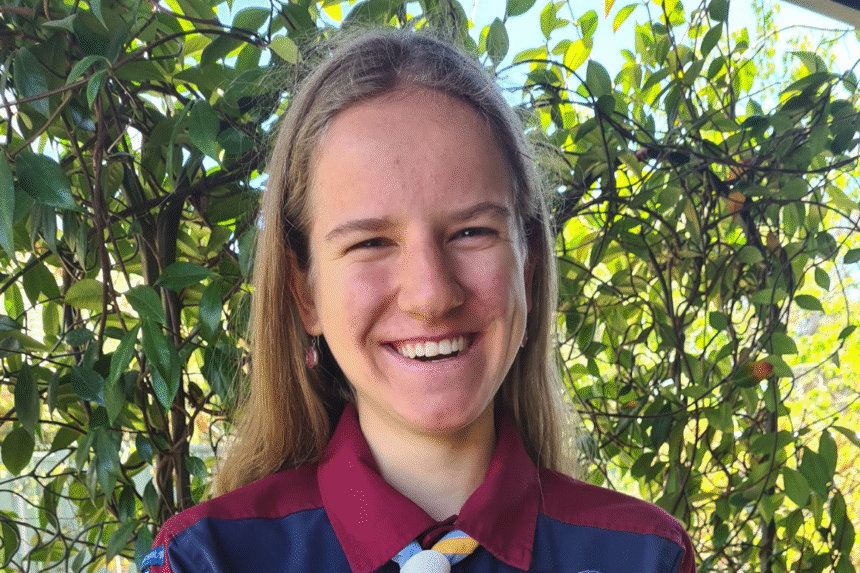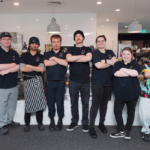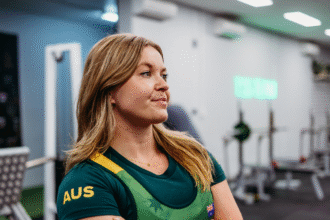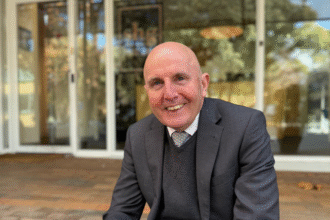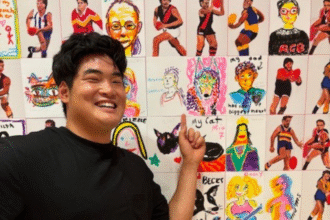Writing History, Living Purpose: Logan Firth’s Journey from Advocacy to Authorship
A young Canberra woman is rewriting more than just history, she’s reshaping how we understand voice, inclusion, and purpose. Her name is Logan Firth. She’s an author, an advocate, and a young woman whose lived experience is not just part of her story, it is the story. And through her debut book Sydney’s Convicts, she’s inviting Australia to look at both the past and the present with new eyes.
The Power of Voice, the Weight of Silence
When Logan was younger, public speaking wasn’t just daunting, it felt nearly impossible. Living with mental and intellectual disabilities, she was often made to feel like her story didn’t belong in the spotlight. But inside her, the words were already building.
“It’s important people understand how my ongoing lived experience means I truly understand the challenges and the critical changes needed for people like me to succeed,” Logan says. “Writing is a powerful way of making those changes come alive to society.”
Her voice first found power on stage, speaking at disability awareness events supported by her care team. These early experiences ignited something permanent. She wasn’t just telling her story, she was showing people how storytelling itself could be a tool for change.
And society took notice.
By her late teens, Logan had already been recognised with two United Nations certificates for her advocacy and was awarded the ACT Children’s Week Young Exceptional Person award. Her work wasn’t just resonating, it was reshaping narratives about what young people with disabilities could achieve.
A Passion for the Past, A Message for the Future
While many young people write about coming of age or fantasy worlds, Logan’s debut book took a very different path, into the dusty, brutal heart of Australia’s convict history. Sydney’s Convicts, her first published book, tells a dual story: one of historical fact, and one of personal rediscovery.
“It’s about finding oneself,” Logan explains. “It’s about learning from the past so we can understand the present.”
Her fascination with history goes beyond textbook memorisation. For Logan, history is a conversation with those who were overlooked, punished, and misjudged, something that mirrors the lived experience of so many disabled Australians. She sees connections between past injustice and modern-day exclusion. Through her writing, she urges us to confront both.
Sydney’s Convicts isn’t just a history book. It’s a layered exploration of justice, voice, and identity and a call to remember that people who were once cast aside still deserve their stories to be told. In doing so, Logan bridges centuries, showing how remembering the past can help us write a more compassionate future.
Writing With Purpose
Logan doesn’t write to entertain, she writes to advocate.
Whether it’s disability inclusion, historical recognition, or mental health awareness, her work always returns to one theme: nobody should feel invisible.
“You are not alone,” she says, her voice steady with experience. “While each experience is unique, all victims share the same emotions and thoughts. There is help out there and when the time is right, the right help will come to you.”
This message has become her guiding principle, one she delivers through school talks, book events, and her online platform. She speaks openly about her mental health journey, not as a dramatic confession, but as an everyday truth. For young people navigating identity, neurodiversity, or trauma, Logan’s openness is both rare and necessary.
Her impact is amplified by her sincerity. There’s no polish for the sake of professionalism, Logan’s writing is raw, warm, and honest. Whether she’s discussing the life of a 19th-century convict or the daily experience of navigating life with disabilities, she writes as someone who has felt excluded and still found a way to belong.
More Than Just a Title
In an era where advocacy often comes with curated social feeds and photo ops, Logan is something refreshingly different. She’s not doing this for clout. She’s doing it because it matters.
“Spending time with my dogs and riding horses helps me wind down from advocacy and writing, especially during stressful or busy periods,” she says, smiling. “And just allowing yourself to bring out the weird side of yourself, especially with family and mates, that’s important, too.”
This reminder of balance is what grounds her. Advocacy is part of her identity, but not all of it. Logan loves animals, travel, and the outdoors. She’s not afraid to be silly, to laugh, or to admit when things are tough. And that humanity is exactly what makes her so powerful.
She’s a person who has carried heavy truths and still chooses joy.
Creating Inclusive Spaces, One Page at a Time
At the heart of Logan’s mission is a bold idea: inclusion isn’t just policy, it’s culture. And culture is shaped by stories.
Through her writing and speaking, Logan is calling for a more inclusive Australia. Not just in schools or workplaces, but in the pages we read, the voices we amplify, and the history we honour.
She often says that inclusion must go beyond awareness and into empathy, something that starts by really listening to those whose perspectives are often left out.
For Logan, that means centering disabled voices, not in footnotes or “special sections,” but as part of the main story. It means being taken seriously as both a historian and a human being. And it means pushing back when society tries to place limits on who gets to be a changemaker.
Logan is proof that young people can lead with both intellect and empathy. That lived experience is a form of expertise. That disability is not a deficit, but a different and vital lens on the world.
Logan’s journey from young public speaker to published author is just the beginning. She’s already working on new writing projects and exploring opportunities to bring her advocacy to wider audiences, both in Australia and globally.
She is building a career, a legacy, and a movement, all through the power of words.
An Invitation to Readers
Logan’s story is one of strength, yes, but also of invitation. It asks something of all of us:
To read more thoughtfully.
To listen more deeply.
To include more radically.
As she says, “Writing is how we bring change alive to society.” But change doesn’t happen in isolation. It takes readers. Listeners. Advocates. Employers. Educators. Community members. You.
So the next time you walk into a bookstore or scroll past a young person’s story online, pause.
What if the voice you hear next could shift your perspective?
What if that voice was Logan’s?
You can follow Logan Firth’s journey through her book Sydney’s Convicts and her ongoing advocacy. She’s not just writing about change, she’s living it. And Canberra, we’re lucky to have her in our wider Purpose community.

